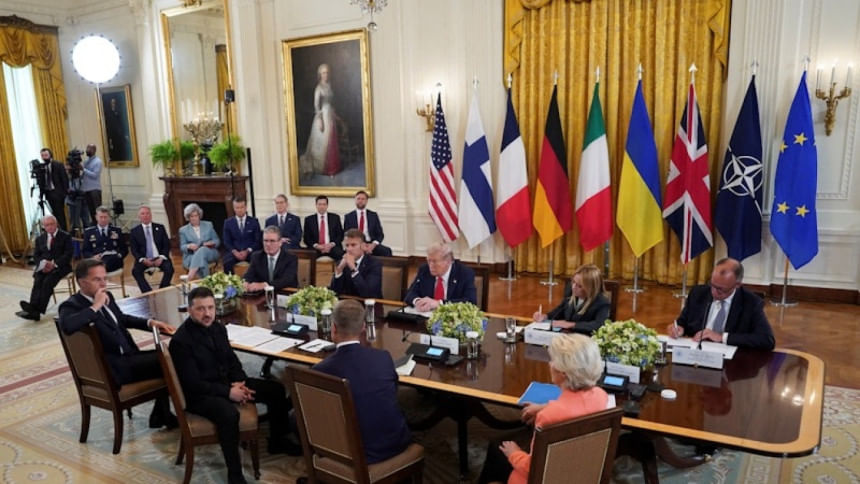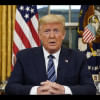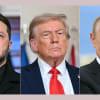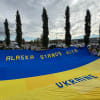Ukraine’s peace lies in compromise

Peace remains elusive in Ukraine. The recent round of meetings between world leaders in Washington, DC, has not moved the needle significantly. Russia's President Vladimir Putin offered potential concessions at a summit with his US counterpart Donald Trump, but Ukraine's President Volodymyr Zelenskyy has yet to indicate any willingness to relinquish the commitments he sought from the West before the war began.
To sum up the current stalemate: despite repeated attempts at negotiation, a lasting and comprehensive peace agreement remains difficult to achieve because of the conflicting goals of the warring parties—Russia and Ukraine—as well as those of the US and European countries supporting Ukraine. The next few weeks will reveal whether all these efforts have been in vain.
For readers who have not followed recent developments, a flurry of activity has taken place to bring about a ceasefire, but it is too early to predict the outcome. War, negotiations, and deals are all still on the table. The first step was a meeting in Alaska's Anchorage between Putin and Trump, followed by a gathering of European leaders in Washington, DC.
Unfortunately, we cannot expect major breakthroughs in the coming days. It is possible that Trump, who calls himself a dealmaker, might manage to pull a rabbit out of the hat and broker a deal. The final outcome depends on bilateral discussions between Putin and Zelenskyy, with Trump present there. One outlandish scenario imagines Trump escorting them to the Hall of Mirrors (Galerie des Glaces) at the Palace of Versailles, locking the doors, and throwing away the key.
Many questions arise: who is to blame for this protracted war? Why did the latest peace initiative fail? What must the key players concede to achieve lasting peace? The shortest answer to all these questions is: it depends on whom you ask. Tens of thousands of people have died since Putin sent in the troops in 2022 and started the war, but others share the blame for goading him into invading Ukraine. A lasting peace in the near future appears unlikely. Russia will not sign any agreement unless Ukraine compromises on its territorial integrity and abandons its ambition to join NATO.
President Trump recently posted on his social media platform, Truth Social, that President Zelenskyy could end the war by ceding Crimea and renouncing NATO membership.
Ukraine needs to forgo NATO membership. European countries can provide security guarantees with or without US involvement. Trump has repeatedly expressed his reservations about further entanglement in European politics. When European leaders rushed to Washington after Zelenskyy's invitation following the Alaska summit, they were briefed on what Ukraine's allies needed to do to reassure Zelenskyy and avert World War III.
When we were in high school, one of the most common questions in the Secondary School Certificate (SSC) examination was: "What are the causes of World War II?" If you asked American high school graduates, most would profess ignorance. But my cohort in the 1970s would unanimously reply, "There are many causes..." and then list all the warring countries. The situation in Europe now feels no different.
By all accounts, the historic meeting between Putin and Trump was a positive initiative. The war in Europe might have been averted had former US President Joe Biden not been incapacitated during the final two years of his ill-fated presidency. His advisers kept him away from major negotiations with China and Russia.
Before Biden, various US presidents had respected an unwritten understanding between Russia and the West that Ukraine would not be invited to join NATO. Some analysts argue that the Barack Obama administration underestimated Russia's determination to prevent NATO's further eastward expansion. Since the mid-1990s, Russian leaders have adamantly opposed NATO enlargement. Yeltsin, Putin, and Medvedev never hesitated to convey Russia's resolve to keep Ukraine out of NATO and its long-term intentions regarding potential conflicts. Ukraine's leaders have also vacillated in their determination to join NATO.
Trump has indicated a preference for Europe to take the lead in providing security guarantees for Ukraine, with US assistance and coordination, rather than extending NATO's collective defence umbrella (Article 5) to Ukraine.
According to Article 5 of NATO, an armed attack against one member is considered an attack against all. This means that if one NATO member is attacked, all others are obligated to assist, taking necessary action, including armed force, to restore and maintain security in the North Atlantic area. Russia allowed the Warsaw Pact (NATO's counterweight) to lapse on the assurance that Ukraine would not become a Western military bastion.
More than a decade ago, John J Mearsheimer, the R Wendell Harrison Distinguished Service Professor at the University of Chicago, wrote a prescient analysis of the Ukrainian crisis in Foreign Affairs. In his article, "Why the Ukraine Crisis Is the West's Fault," he foreshadowed every major mistake the Western alliance would make after the Soviet collapse.
Many in the West now recognise that NATO expansion was "the central element of a larger strategy to move Ukraine out of Russia's orbit and integrate it into the West," as Mearsheimer wrote. This move clearly provoked Russian opposition. For Putin, the overthrow of Ukraine's democratically elected, pro-Russian president Viktor Yanukovych in 2014 was the last straw. The Orange Revolution was the red flag that pushed Russia to initiate its do-or-die plan to forestall NATO expansion.
Where do we stand now? An optimistic assessment suggests a deal could freeze the current front line Donbas—stretching roughly 620 miles from northeastern Ukraine to its Black Sea coast—without Ukraine officially ceding the land on the other side. After that, a bilateral or trilateral summit could work towards a permanent truce, withdrawal of forces, security guarantees for Ukraine, and, akin to the Korean model, a demilitarised zone along a yet-to-be-determined front line.
Dr Abdullah Shibli is an economist working at a non-profit financial intermediary in the US. He previously worked for the World Bank and Harvard University.
Views expressed in this article are the author's own.
Follow The Daily Star Opinion on Facebook for the latest opinions, commentaries and analyses by experts and professionals. To contribute your article or letter to The Daily Star Opinion, see our guidelines for submission.

 For all latest news, follow The Daily Star's Google News channel.
For all latest news, follow The Daily Star's Google News channel. 










Comments